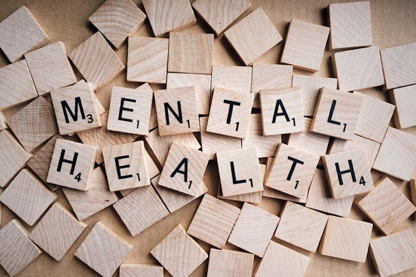Article by Valencia InnoHub
Developed countries have been facing a demographic challenge for some years now; the increase in life expectancy and the decrease in the birth rate have generated an aging society.
This phenomenon has resulted in care needs for the elderly that have not had institutional backing in a lot of European countries. Up to that time, the market was the first to identify the growing need for elderly care and to develop services such as private nursing homes and home care.
Afterwards, with the implementation of different laws supporting caregiving, the private and public spheres worked together, giving rise to a wide network of protection for dependent persons. However, due to the familiarist tradition in some areas following the so called <<Mediterranean Welfare Model>>, the care of the elderly has been assumed by the family most of the times.
In addition, there has been a traditional gender bias since most caregivers, both family and external workers, were women. Other socioeconomic variables such as level of education also have played a role. This aspect was noticed by the different governments that incorporated special modalities in the Personal Income Tax or family caregivers, recognizing their work and insisting on the fact that many times being a caregiver is not chosen.
As we can appreciate, the issue of long-term care has had a long history and has experienced a transformation in various areas. However, it was not until the Covid 19 crisis that the psychological and emotional burden of caregiving came onstitute the focus of the debates.
On the one hand, the virus has particularly affected our elderly, making them an even more vulnerable sector. And, on the other hand, the various forms of lockdown have resulted in the elderly staying at home much longer with family members who at the same time act as caregivers. This fact has highlighted the psychological stress to which caregivers are subjected and afflictions such depression, anxiety, excessive worry and difficulties to manage stress. These symptoms are aggravated by the uncertainty to which the pandemic subjects us, at the professional, family and health levels.
Professionals recommend seeking psychological help to better manage anxiety, as well as finding time for oneself and being able to disconnect, since living and working in the same place and with the same person can be difficult. Soft skills are strongly recommended to deal with the anxiety caused by the pandemic situation.
From another point of view, we note how Covid 19 has increased the demand for nursing home and home care workers. This demand has had the same effects on these workers outside the family. They must cover a larger number of people and are under more pressure because they must follow a protocol. For example, in home care, other tasks are now added such as maintaining distance, ventilation, disinfection, etc.
Finally, there is the situation of relatives who have their elderly in residential care. The distance and the prohibition of visits, together with the fear that the elderly may become ill, have generated episodes of anxiety, sadness and worry. For this reason, the Governments have recommended that caregivers facilitate electronic contact between users and their relatives.
In conclusion, the history of caregiving has evolved and finally considered the mental health of caregivers as an important issue to take into account. But Covid 19 has accentuated the strong and urgent necessity to implement soft skills in the daily tools of the caregivers for them to be able to deal better with the emotions that usually arise in their daily activities. Thus, we must pay special attention to both family and professional caregivers and ensure that the mental and physical consequences of the pandemic are correctly treated with the adequate tools, applying always the prevention through proved tools and mechanisms based on soft skills.
References:
BBC News Mundo (January 2021). ‘Alguien el otro día vio morir a ocho o nueve personas en un turno’: la devastadora crisis de salud mental en el personal sanitario por la pandemia de coronavirus. BBC News. Online resource: https://www.bbc.com/mundo/noticias-55676579
Brión Insua, Rodrigo (January 2021). Cada euro bien invertido en Salud Mental nos puede ahorrar cuatro” indica el psicólogo Carlos Losada. Galiapress. Online resourse: https://www.galiciapress.es/texto-diario/mostrar/2265251/consecuencias-psicologicas-esta-crisis-podrian-manifestarse-persona-incluso-anos-despues-fin-pandemia
Fuente Robles, Yolanda María de la; González-López, Lucía; Guzmán-Tirado, Mercedes (2011). El desarrollo del sistema de atención a la dependencia y las personas cuidadoras en España: necesidades de atención y nuevas vías de apoyo. Universidad de Huelva. Online resource: http://rabida.uhu.es/dspace/handle/10272/4924
Guindo, Daniel and González Ramón (February 2021). Las otrac onsecuencias del coronavirus. Las Provincias. Online resource: https://www.lasprovincias.es/comunitat/consecuencias-coronavirus-20210206205725-nt.html
Limón, Raúl (January 2021). Las otras secuelas de la covid. El País. Online resource: https://elpais.com/ciencia/2021-01-29/las-otras-secuelas-de-la-covid.html
Tarricone, Rosana and Agis D. Tsouros (2008) Home Care in Europe. The solid Facts. Universià Commerciale Luigi Boccone. World Health Organization. Online resource: https://www.euro.who.int/__data/assets/pdf_file/0005/96467/E91884.pdf

